Military members and veterans researching the VA loan program tend to have many specific questions about how it works. And we’ve covered dozens of those questions right here on our blog.
Today, we will compile some of the VA home loan FAQ to give you a well-rounded understanding of what it involves.
What Is a VA Loan?
A VA loan is a type of government-backed mortgage for military members, veterans, and some spouses. Like other types of loans, VA loans are generated by banks and lenders within the private sector. However, VA loans also receive a guarantee from the federal government, which reduces risk for lenders.
VA loans function similarly to other home loans, but they have several important distinctions that help qualified veterans, spouses, and active duty personnel.
Here’s an overview of how a VA loan process works:

- Eligibility Determination: To be eligible for a VA loan, a person must fulfill specific service requirements, such as having served a certain amount of time on active duty, being a veteran, or being the surviving spouse of a service member.
- Certificate of Eligibility (COE): Borrowers must show lenders they are eligible by obtaining a Certificate of Eligibility (COE) from the VA, which confirms their military service history and status.
- Lender Selection: When applying for a loan, borrowers select a lender approved by the VA. Some examples of these lenders are mortgage firms, banks, and credit unions.
- Application and Approval: After deciding on a lender, borrowers complete an application for a loan, supplying financial and personal information for analysis.
- Property Selection: After undergoing the appraisal procedure to ascertain the worth of the home, borrowers choose a residence that satisfies VA property guidelines.
- Loan Processing and Underwriting: The lender processes and underwrites the loan application in accordance with VA regulations and the borrower’s financial circumstances.
- Loan Guaranty and Funding: Following approval, the VA provides the lender with a loan guarantee, guaranteeing repayment of a part of the loan in case of a borrower failure. After that, the lender funds the loan.
- Repayment: By the conditions set forth, borrowers return the loan to the lender, including the principal and interest.
Who Is Eligible for a VA loan?
Are you aware of these interesting VA loan facts?
The VA loan program was created in the 1940s to help veterans returning from World War II establish homeownership. Today, the program is open to military members who are currently serving, veterans who have served in the past, and certain qualifying spouses.
Generally speaking, the following groups are eligible for a VA loan:
- Active-duty military who have served for at least 90 days
- National Guard and Reserve members who have completed at least six years of regular service or 90 days of active duty
- Surviving spouse of a military person who died in the service or due to a service-related disability
How Do I Apply for One?

The VA loan application process is nearly identical to that of conventional loans, with a couple of minor differences.
To begin the process, you must obtain your Certificate of Eligibility (COE) from the Department of Veterans Affairs. Next, you’ll want to find a lender that offers VA loans and submit a standard mortgage application.
You’ll also have to provide various financial documents, just as you would with a regular mortgage loan. Typical documents needed for a VA loan include bank statements, W-2 forms, tax returns, LES or pay stubs, and documents relating to any assets you hold.
Can you have two VA loans?
Yes, having two VA loans simultaneously under certain conditions is possible. This can happen if the borrower still has enough entitlement after their initial VA loan.
For example, a service member may be able to use their remaining entitlement to use a VA loan to buy a second house if they need to relocate but still wish to keep the first residence as a rental property.
It’s crucial to speak with a lender approved by the VA to learn about your particular eligibility and entitlement.
What Benefits Does This Program Offer?
The most well-known benefit is the ability to buy a home with no down payment, but the VA loan program offers many other benefits as well. These include no mortgage insurance, flexible qualification criteria, and the ability to use the program repeatedly throughout the years.
How Much Can I Borrow with a VA Loan?

The maximum loan size will largely depend on your gross monthly income.
When you apply for a VA loan, your debt-to-income ratio, or DTI, will be ascertained by the lender. Ideally, your total DTI ratio should not exceed 41% when taking on a VA loan. However, exceptions can be made for otherwise qualifying borrowers with compensating factors.
The best way to determine how much you can borrow is to get pre-approved through a lender participating in the program. Pre-approval is a financial screening process that yields two critical pieces of VA loan information: (1) whether or not you’re qualified for a VA loan and (2) how much you can borrow.
But this is primarily left up to the lender. As the Department of Veterans Affairs explains:
“The VA-backed home loan limit refers to the amount we’ll guarantee (the maximum amount we’ll pay to your lender if you default on your loan). We don’t limit how much you can borrow to finance a home.”
Do I Need to Make a Down Payment?
In most cases, the answer is no!
The VA loan program allows you to obtain a large loan to cover the entire purchase price. Most borrowers who use this program only have to make a down payment if they choose.
Unfortunately, many eligible military members and veterans don’t realize they have this powerful benefit. Past surveys have shown that many potential borrowers believe they must make a down payment when using a VA loan.
You need sufficient income to manage your monthly loan payments and recurring debts. And you’ll probably need to have enough money in the bank to cover your closing costs.
But you’re not required to pay down on your purchase with a VA loan.
What Are the Credit Score Requirements?

The VA does not establish an official minimum credit score requirement for VA loans. They leave that up to the mortgage lender. The VA also encourages lenders to consider the big picture when considering applicants instead of focusing on individual factors like credit scores.
You should also know that VA loans have some of the most flexible and forgiving qualification requirements of any home loan program. There are two reasons for this.
For one thing, these loans are partially guaranteed by the government, reducing risk for participating lenders. Secondly, VA loan borrowers have a statistically low level of default and foreclosure. They’re generally strong borrowers and responsible homeowners.
Even so, a higher credit score can benefit you when applying for a VA loan. It could make it easier to get approved and also help you qualify for a lower interest rate. The mortgage rate that is applied to each loan is mostly determined by the credit score of the applicants.
Can I Use a VA Loan More Than Once?
As long as you continue to meet the prerequisites for basic eligibility, you are eligible to apply for VA loans more than once. This can be done through a process known as “restoration of entitlement.”
If you use a VA-backed mortgage to buy a house and later sell the house (completely paying off the loan in the process), you will restore your entitlement to the program. This means you could use another VA loan to buy another house with all of the same benefits you enjoyed the first time around.
One common question among veterans and service members is, “How many times can I use a VA loan?”
There is no limit as to how many times you can do this.
What Types of Properties Can I Purchase?
You can purchase almost any type of standard residential home with a VA loan. This includes single-family detached homes, approved condo units, new construction, some manufactured homes, and multi-unit properties like duplexes and triplexes.
The main caveat here is that the home must serve as your primary residence. In the case of multifamily properties, at least one of the units must serve as the borrower’s primary residence. The program is not designed to finance vacation homes or second homes.
The property must also fulfill the VA loan program’s minimum property requirements. These requirements mainly focus on basic health and safety issues to ensure that the home is safe and habitable for the new occupant.
Generally speaking, a standard VA purchase loan cannot be used to buy a “fixer-upper” that needs serious work. The home has to be move-in ready at the time of closing.
However, it is important to note that you cannot use a VA loan to buy land unless you have immediate plans to build a home on it. The purpose of the VA loan program is to assist qualified veterans, service members, and their families in purchasing properties to use as primary residences.
According to the program’s criteria, the property being financed with a VA loan needs to be a residential property that can be occupied right away after completion. You might need to look into financing alternatives if you want to buy land with the plan to build a house on it in the future.
Are There Any Additional Fees for Borrowers?
While VA loan borrowers can avoid the down payment and mortgage insurance, they do encounter a “funding fee.” The Department of Veterans Affairs uses these funds to help sustain the program, making it available to future generations of borrowers.
If you’re using this program for the first time and with a down payment below 5%, you’ll probably have a funding fee of 2.15%. Making a down payment of 5% or more reduces your funding fee to 1.5%. Disabled veterans are often exempt from this requirement.
The good news is you have some flexibility here. The VA loan funding fee can be paid at closing or rolled into the loan.
Can I Use a VA Loan to Refinance an Existing Mortgage?
Yes, you could use the VA loan program to refinance your existing mortgage loan, even if you currently have a conventional (non-VA) loan. Homeowners currently paying for private mortgage insurance could refinance to a VA loan and eliminate their PMI, thereby reducing their housing costs.
How Long Does It Take to Close?
According to data compiled by the Department of Veterans Affairs, home buyers using VA loans can, on average, go from the application to the final closing in around 44 days.
This is comparable to conventional mortgage loans’ average processing and closing timeframe. So, the idea that VA loans “take forever to close” doesn’t hold water.
Can I Get a VA Loan While I’m on Active Duty?
Yes, active-duty service members make excellent candidates for the VA loan program. They have a steady paycheck, job security, and often an additional housing allowance (BAH) that makes homeownership even more affordable.
You’ll probably need a letter from your command to verify your current service status. But you don’t need permission from your command to buy a home. The military and the VA both encourage responsible homeownership.
As mentioned above, active-duty service members in good standing are typically eligible for the VA loan program after just 90 days of continuous service.
Do I Have to Pay Mortgage Insurance?
The VA loan program does not require borrowers to pay for mortgage insurance. This benefit can reduce your monthly payments and overall housing costs.
Some of the other major mortgage programs require some form of insurance. For instance, the Federal Housing Administration (FHA) loan program requires all borrowers to pay mortgage insurance premiums.
With a conventional loan, borrowers who make small down payments typically have to pay for private mortgage insurance (PMI).
Conversely, the VA loan program is among the few mortgage options that permit borrowers to finance the entire purchase price without paying extra insurance.
Final Words: Are VA Loans Good?
VA loans are a smart choice for qualified service personnel, veterans, and certain spouses because of their many advantages. They are a popular option due to their flexible qualification criteria, lack of need for mortgage insurance, and the possibility to purchase a property with no down payment.
The VA loan program has several approved applications to make things more flexible for qualifying borrowers. In general, veterans of the armed forces can find that VA loans are a great way to become homeowners.
Have other VA loans questions? Our website offers an extensive library of VA loan tutorials and guides. If you have a question about this program that is not answered above, you’ll probably find it elsewhere on the site. Use the search tool above to get started!


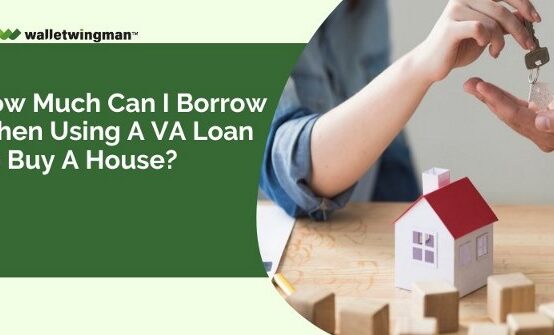 How Much Can I Borrow When Using a VA Loan to Buy a House?
How Much Can I Borrow When Using a VA Loan to Buy a House? 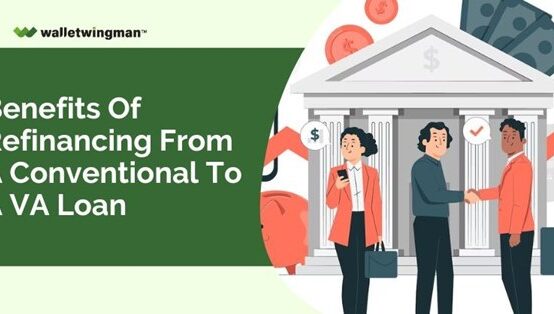 Benefits of Refinancing From a Conventional to a VA Loan
Benefits of Refinancing From a Conventional to a VA Loan 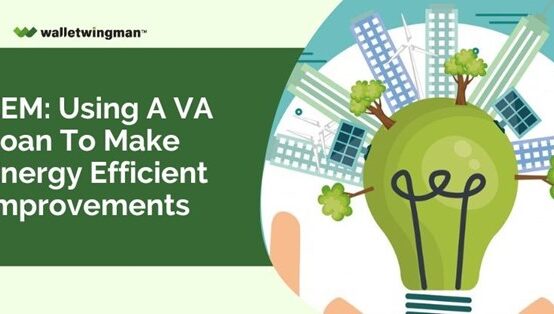 EEM: Using a VA Loan to Make Energy Efficient Improvements
EEM: Using a VA Loan to Make Energy Efficient Improvements 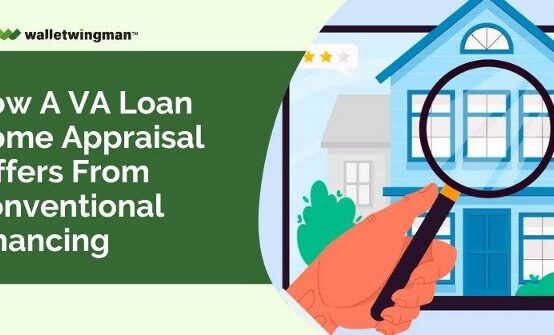 How a VA Loan Home Appraisal Differs from Conventional Financing
How a VA Loan Home Appraisal Differs from Conventional Financing 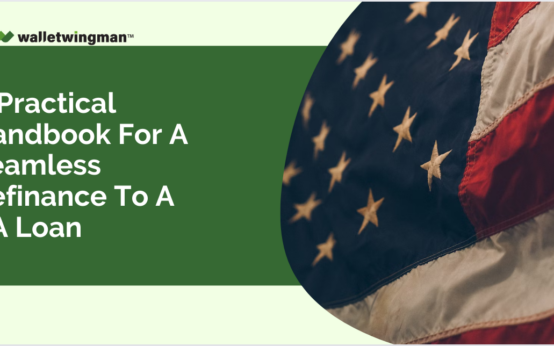 A Practical Handbook For A Seamless Refinance To A VA Loan
A Practical Handbook For A Seamless Refinance To A VA Loan 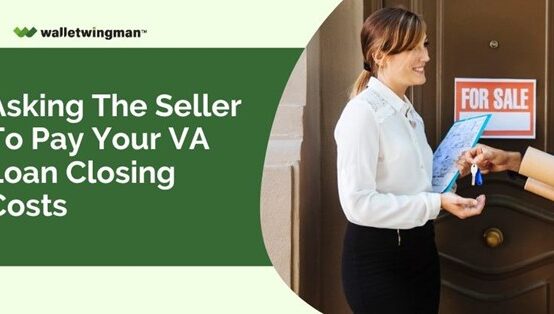 Asking the Seller to Pay Your VA Loan Closing Costs
Asking the Seller to Pay Your VA Loan Closing Costs 